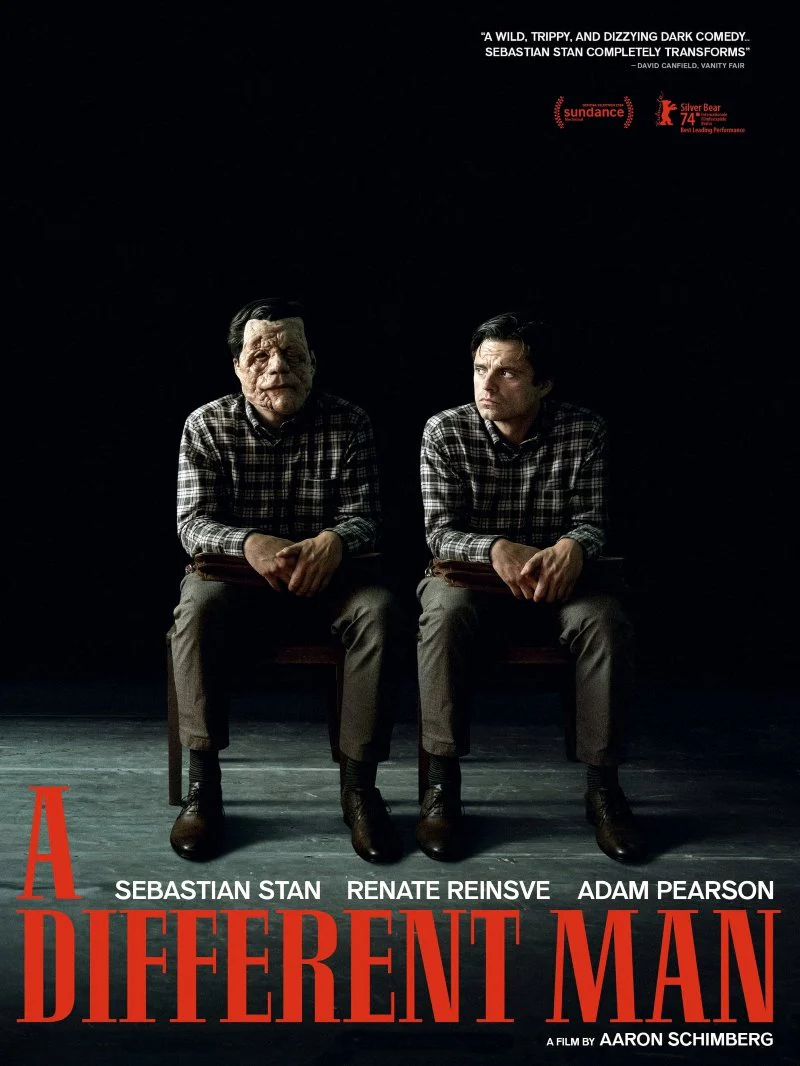A parable of a man affected by neurofibromatosis who decides to undergo surgery in an attempt to heal. A human drama, with Cronenbergian undertones, tinged with grotesque elements, paradoxical irony, and a satirical take on the entertainment industry. A flawless script underpins a work open to multiple interpretations, culminating in a narrative reversal that makes for a powerful and, at times, divisive film.
The protagonist, Edward, played by Sebastian Stan, is an aspiring actor suffering from neurofibromatosis type 1, a disease that has distorted his face and made him lonely and insecure. His life changes when he meets Ingrid, a playwright who moves into his building.
After undergoing a medical experiment, Edward recovers and takes on a new appearance. He then decides to fake his death and reinvent himself as Guy, a real estate agent. However, he discovers that Ingrid has written a play inspired by their friendship. Obsessed with the project, Edward auditions and gets the part of himself, unrecognized.
The situation is complicated by the arrival of Oswald, another man with neurofibromatosis who lives peacefully with his condition. Edward, tormented by jealousy and a sense of exclusion, falls into a spiral of self-destruction that culminates in violence and alienation.
Aaron Schimberg is an American director and screenwriter known for his provocative and unconventional cinema, capable of profoundly exploring themes such as identity, deformity, obsession, and representation. After debuting with Go Down Death (2013), a surreal and visionary work, he gained greater attention with Chained for Life (2018), a sharp and ironic reflection on the way cinema treats disability and physical diversity. His style is distinguished by the use of layered narratives, sharp dialogue, and a strong metacinematic component. In 2024, he presented A Different Man, starring Sebastian Stan, a psychological drama that explores the desire for transformation and the need for acceptance. Schimberg, himself affected by a genetic condition, brings a personal and authentic perspective to his cinema, challenging the aesthetic and moral conventions of traditional storytelling.
